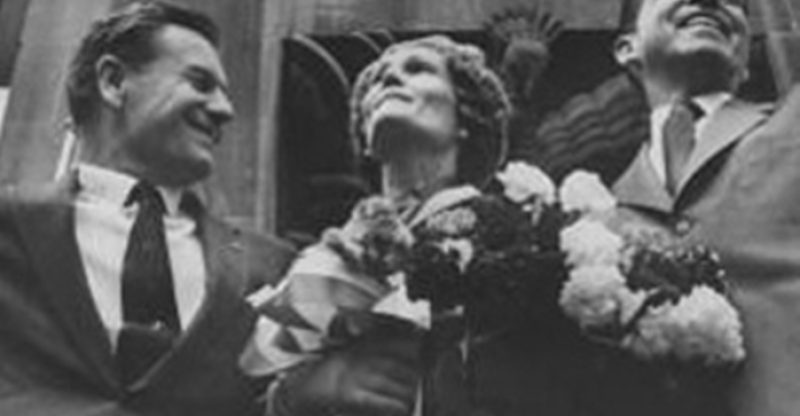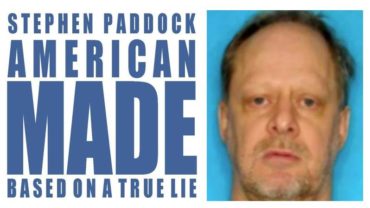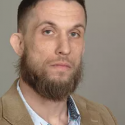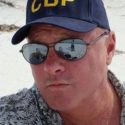Allegations regarding “Butch” Merritt, Watergate, Intelligence Agencies and “Crimson Rose,” Vol. XV
Endgame – Part Two
Written (and first posted) by Kris Millegan, April 4, 2011
Maybe this [Watergate] is like the Old Testament. It was visited upon us and maybe we’re going to benefit from it. – Nelson Rockefeller, July 17, 1973
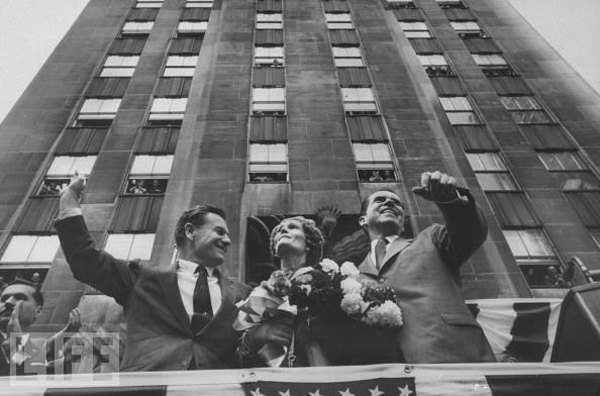
From, Gerald Colby’s, Thy Will Be Done:
The Return of Richard Nixon
High above New York’s Fifth Avenue, in an apartment just a few floors beneath Nelson Rockefeller’s luxurious three-story penthouse, Richard Nixon was making a decision about 1968. He had been carefully laying the foundation for this campaign ever since he moved to New York in 1963 to join the Mudge, Rose law firm. He had become involved with a new financial group, organized around the mutual funds and railroad fortune of Alan and Fred Kirby of Texas and their allies, including Donald Kendall, head of PepsiCo. Nixon was now on the boards of six companies, where he rubbed shoulders for the first time with the Eastern Establishment in its own lair. [emphasis added]
Even though he had lost his races for the presidency in 1960 and California’s governorship in 1962, Nixon continued to play the loyal Republican. Even during the 1964 Goldwater debacle, he traveled the rubber-chicken circuit, boosting local candidates and collecting IOUs in the process. He did the same in 1966. Now he was ready.
So were a large number of Republican moneymen.
Nixon’s globe-trotting in the Kendalls’ jet on behalf of Pepsi Co’s international sales expansion and his success in promoting Pepsi franchises – including those in Saigon and Bangkok – earned him high marks on Wall Street and a regular six-figure income. It also convinced many business leaders that Nixon was a suitable safe alternative to the besieged Lyndon Johnson. [emphasis added]
Nixon was not only a political alternative to Johnson; he was also a means of escape from the scandals and indiscretions surrounding Johnson. Foremost was the famous Bobby Baker scandal, which had erupted during the Kennedy administration when Attorney General Robert Kennedy conducted a bribery investigation against Johnson’s former Senate aide. Baker’s ties to land-development schemes involving Texas oil moneymen surfaced during the investigation. In October 1963, the U.S. Senate began holding hearings on the scandal. Some of the same Texans had been named in Senate Rules Committee hearings in connection with payoffs and loans to Baker in a land-development scheme tied to Jimmy Hoffa’s Teamster Pension Fund. Johnson had cause to worry that his name would be smeared, and he was not the only one. Years later, it was revealed that one of the Texas real estate firms active in the Dallas-Fort Worth area in 1963 – a firm that was partly owned by the family of Bedford Wynne, one of the named “Bobby Baker set” – had a second controlling interest: the Rockefeller family through Rockefeller Center, Inc., the Manhattan real estate firm now owned by Nelson and his brothers, the Rockefellers had become partners with the Wynne family in the Great Southwest Corporation.
Should Robert Kennedy run for president and be elected, there was the likelihood of renewed federal investigations of organized crime and of Baker and those linked to him. Who knew where this could lead? Lyndon Johnson, his power wrecked on the shoals of Vietnam, could not protect his friends or even himself. The movement of conservative Texas money toward Richard Nixon took on the appearance of a stampede. Some leading figures, like Governor John Connally, eventually would follow the herd right out of the Democratic party.
Of great importance to Nixon was the backing of Barry Goldwater, rendered publicly as early as 1965. This backing brought in Christian Fundamentalists and the money behind Fundamentalism. Both the new money and the old money had a symbolic center in Billy Graham. Graham’s ministry, in turn, offered Nixon a mass base of conservative, middle-of-the-road voters.
In January 1968, Richard Nixon decided to move beyond his preoccupation with courting the Goldwater ultraconservative wing and to begin capturing the moderately conservative center by inviting Billy Graham to his Florida home. Nixon asked for Graham’s help in deciding whether to run. Graham had known Nixon since the 1950s. They were golfing buddies. Both were hawkish on Vietnam, although Nixon hoped that those who were tired of the war would support him over Johnson. An endorsement from Billy Graham, a registered conservative Democrat, would be a hard blow to Johnson.
Graham prayed, and Nixon joined in. Graham read the Bible, and Nixon read it, too. They watched football. But still no word from Graham about the race. Finally, as Graham prepared to depart, Nixon’s patience ran out. “You still haven’t told me what I ought to do,” he said. Graham turned back, a smile on his face. “Well, if you don’t run, you’ll always wonder,” he said.
Nixon had no intention of wondering. With Graham’s support, God would appear to be on his side.
Rockefeller’s conversation with Johnson that day in the Oval Office was kept “off the record,” but Nelson had a press conference afterward in the White House’s West Lobby. He was the first candidate to resume campaigning after [Robert] Kennedy’s death, and the White House setting gave every indication of the president’s blessing. “I requested a meeting with the President so that, as a result of last week’s tragedy, we discussed the role of a candidate in assisting to bring the kind of stability and healing of wounds and division which exist in this country.” Having proclaimed himself a national healer, he already spoke like a president-elect. “I spent quite a lot of time with the President alone. Then Secretary Rusk, General Wheeler [chairman of the Joint Chiefs of Staff], and Mr. Rostow came in. We spent two hours on the situation at home and abroad.”
Asked if there would be any changes in his campaign, Nelson managed to tie personal courage to support for the war in Vietnam. “No … If democracy is to stay alive and strong, then there can be no timidity.… There are some 500,000 Americans fighting on the front in Southeast Asia, some 20,000 have given their lives; and I don’t think it is for us at home who are trying to represent the forces of democracy in the heart of the nation to cringe from risks.”
Then he revealed his campaign strategy. Asked if Kennedy’s death had changed the political picture for the Republicans, Nelson nodded. “I think … the shock and sorrow will be reflected in a changed mood, that the bridges which he built to our groups who have not shared largely in the American way of life are going to be bridges which will influence both those who are in these groups and the rest of this country.
Nelson offered Kennedy’s Senate seat to two liberals, albeit Republican liberals, in the Kennedy maverick vein: New York Mayor John Lindsay, who declined, and then Rep. Charles Goodell, who accepted. He then appointed the former California chair of “People for Kennedy” and a close friend of the Kennedys, Mrs. Thomas Braden, to lead a national “People for Rockefeller” organization. “Most of the people I know who were for Robert F. Kennedy are now for Nelson A. Rockefeller,” she explained. “Some are still too stunned to do much but those who can will help Governor Rockefeller.” She was not quoted as mentioning her husband’s debt to Nelson for a loan that helped him buy a California newspaper.
To launch his 66,000-mile blitzkrieg around the country, Nelson headed for Braden country, Los Angeles. For the first time he included Watts in his itinerary. “I think the people who supported Bobby Kennedy are going to come to me now,” he told his staff, and he instructed them to begin all speeches on the West Coast with a tribute to Kennedy. But the speeches should not be too introspective. “I don’t want any of that sick society stuff. A few nuts don’t reflect the state of the country,” he insisted. The United States had better stop “looking backward” on past tragedies and mistakes and get beyond such “negative thinking.” California Governor Ronald Reagan’s claim that the assassination was the result of a growing attitude of permissiveness by the nation’s courts and leaders might have contained a kernel of truth for New York’s “Get Tough on Crime” governor. Nelson could not accept Billy Graham’s belief that the shooting was symbolic of world moral and spiritual decline or Eugene McCarthy’s belief that the United States bore too great a burden of guilt for the kind of neglect that had allowed the disposition of violence to grow in the country. Nelson Rockefeller was bullish about America and still the perennial optimist about his own political ambitions.
He could pull together minorities, liberals, and youths into a new Rockefeller coalition, he confided to his antiwar son, Steven. He believed he could “get the nomination by a great public outcry,” Steven explained later. “Going to the people is his thing; he loves the applause. Going to the delegates was not his thing.” And in the end, that was his undoing. If average Republican delegates were anything in 1968, they were not minorities, not liberals, not youths.
And Nelson Rockefeller was not Robert Kennedy. Henry Kissinger’s plan for withdrawal from Vietnam and his constant efforts to make Nelson’s confusing statements come out sounding right did not create the excitement that Kennedy’s clean break with Johnson had.
Rockefeller by now had adopted the Kennedy style of plunging recklessly into crowds, pumping hands, and losing cuff links. Desperate to win over Kennedy’s Latino supporters in Texas, Florida, and California, he played his Latin American ties to the hilt. He often spoke in Spanish at such events. But by the end of July, it was clear to the country that Rockefeller’s Kennedy style was not Kennedy substance.
His “New Leadership versus Old Politics” theme fell flat with both voters and delegates, especially when they looked at who was backing him. These backers were no populist mavericks like those who had backed Kennedy. These were millionaire businessmen, men like David and Winthrop’s real estate partner, Trammel Crow; luxury department store owner Stanley Marcus; Du Pont family in-law Baron Kidd; and chemical scion A. Felix du Pont, Jr.
In the waning days of the campaign, with the Republican Convention in Miami just a week away, the Miami Herald prematurely released a Gallup poll showing that Nixon could do better than Rockefeller against Humphrey or McCarthy. “Nixon or John Mitchell must have gotten to Gallup,” Rockefeller said. He knew all about the use of polls in psychological warfare, and Gallup was suspect as a “born-again Christian.” So he responded in kind, leaking a Harris poll that showed himself the victor. Then he repeated this maneuver by releasing a poll taken by his own campaign staff after the convention had begun. But it did no good.
Rockefeller lost on the first ballot, 277 votes to Nixon’s 692. His last campaign to win the White House he coveted all his life was over.
It was a terrible shock to his sense of self-worth. He flew back to New York, comforting his backers with a typical self-effacing apology. “You were fine. I just wasn’t good enough. I let you down.”
Even Humphrey’s offer later that month to share the Democratic ticket as the vice presidential nominee did not soften the blow. “Franklin Roosevelt wanted me to be a Democrat (back in the 1940s). It was too late.” He had cast his lot: Win or lose, Nelson Rockefeller would die a member of the Republican Party.
Nelson spent the months up to election day quietly betraying Lyndon Johnson. After Nixon’s nomination, he had offered the services of his top foreign policy aide, Henry Kissinger, to the Nixon camp. Kissinger, for his part, remained privately bitter about Nixon, but to Nixon’s face the Rockefeller camp stayed on the track of party loyalty, even to the point of betraying Lyndon Johnson’s trust.
The First October Surprise
Nelson Rockefeller wanted a seat in Nixon’s cabinet. And Nixon wanted to be president. Building a bridge between the two goals was Kissinger’s job.
Kissinger had had Johnson’s confidence since 1967, when Kissinger approached Defense Secretary Robert McNamara, offering to engage in secret shuttle diplomacy to Paris to see if the North Vietnamese were ready to talk. Because they were planning the Tet Offensive, they were not. Nevertheless, Kissinger’s hard work and discretion convinced Secretary McNamara and Deputy Secretary Cyrus Vance that he could be trusted. That trust would cost the Democrats the White House.
In the weeks immediately following the Democratic and Republican conventions, the Paris peace talks were on hold. Saigon refused to consider the participation of the National Liberation Front (NLF) in a new coalition government in exchange for peace. Johnson’s continued bombing of Vietnam, meanwhile, only deepened Hanoi’s resolve to keep fighting. After much discussion, McNamara’s replacement as defense secretary, Clark Clifford, came up with a new, two-track approach: the United States would deal directly with North Vietnam and let the Saigon-NLF dispute be approached on a separate track of negotiations. Johnson thought it over.
On September 17, the same day Johnson OK’d Clifford’s approach, Henry Kissinger arrived in Paris. Two days later, Averell Harriman arrived, with the news that he had a breakthrough in the peace talks: Johnson had agreed to halt the bombing without Hanoi’s having to commit itself first to stopping the war. Serious negotiations could now begin. What was crucial was to keep the Republicans from getting wind of this new stance and any agreement with Hanoi to prevent them from urging the Saigon regime to resist.
It was at this time that Kissinger visited Harriman’s aide in Paris, Daniel Davidson, and dined with Harriman’s deputy, Cyrus Vance. Davidson, who knew only that “something was going on” with Harriman and Vance, spoke freely with Kissinger, encouraged by Kissinger’s confiding that “six days a week I’m for Hubert, but on the seventh day, I think they’re both awful.” Kissinger promised to make Davidson his deputy if he got any post in Humphrey’s administration or in Nixon’s.
What he did not tell Davidson was that he was secretly informing on the negotiations to the Nixon campaign staff. “I knew that Rockefeller had been offering Kissinger’s assistance and urging that I make use of it ever since the convention,” Nixon later wrote in his memoirs. “I told [H. R.] Haldeman that [campaign manager John] Mitchell should continue as liaison with Kissinger and that we should honor his desire to keep his role completely confidential.”
Mitchell, too, was sure that Nelson Rockefeller was the prime mover: “I thought Henry was doing it because Nelson wanted him to. Nelson asked Henry to help and he did.”
In late September, Kissinger, now back from Paris, reported the dreaded news that “there is a better than even chance that Johnson will order a bombing halt at approximately mid-October.”
“Our source,” Haldeman cryptically told Nixon, “is extremely concerned about the moves Johnson may take and expects that he will take some action before the direction.” On October 12, three days after Harriman made another breakthrough in Paris, Kissinger called Nixon staffer Richard Allen to warn of a likely development before October 23 and that there was “more to this than meets the eye.
This was exactly the kind of ominous impression that Harriman and Clifford did not want to convey to Saigon. And that was exactly what the Nixon campaign passes on to Saigon through an old political friend of Richard Nixon and Nelson Rockefeller, Anna Chennault. * [*Chennault, a founder of the “China Lobby” that had backed Chiang Kai-shek, was the widow of General Claire Chennault, the founder of Civil Air Transport (CAT), the CIA’s airline in Southeast Asia. CAT was the CIA airline that Harper Woodward, a top Rockefeller aide, was a director of during the year Nelson oversaw covert operations as Eisenhower’s special assistant on Cold War strategy.]
By passing on state secrets that involved the lives of American soldiers, Kissinger was risking possible federal prosecution. He had also compromised any future Nixon administration. “My attitude was that it was inevitable that Kissinger would have to be part of our administration,” Richard Allen later concluded. The Nixon staff knew that it was “a pretty dangerous thing for him to be screwing around with the national security.”
The same could have been said for the Nixon campaign. Warned by an excited Kissinger just twelve hours before the announcement of the bombing halt that Harriman and Vance had “broken open the champagne,” believing they had gotten Saigon’s approval to participate in the negotiations, the Nixon campaign leaked the news to Saigon hardliners. That day, General Thieu, the president in Saigon, announced he would not participate in the talks. The agreement collapsed. The war would go on for six more years; as many Americans would die in Vietnam during this period as had died there before.
Hubert Humphrey’s campaign, riding the crest of the negotiations’ progress and sustained now by his belated break with Johnson’s escalation, had come to within one point of overtaking Nixon, thanks to Nixon’s own intransigence on Vietnam. But the collapse of the negotiations hurt him.
Johnson had received CIA reports that pointed to a security leak in Paris through the Nixon camp and Mrs. Chennault to Saigon. But Johnson could not get proof and feared exposing intelligence sources or discrediting his administration with unsubstantiated charges. Besides, angry with Humphrey’s defection from his war policies, Johnson had lost any interest in helping him.
Rockefeller expected his reward: perhaps a seat in the new Nixon cabinet. To the press he had speculated that he was interested in only the State Department or the Defense Department; the Departments of Health, Education and Welfare, Housing and Urban Development, or even the Treasury had little attraction for him. On September 25, he convened his aides, including Kissinger, for a luncheon meeting in Manhattan to ponder the question of which seat he should take if one was offered. There was a phone call from Dwight Chapin, Nixon’s appointments secretary.
But the call was for Kissinger, not for Rockefeller. When Kissinger returned, the group took up Rockefeller’s role in a Nixon cabinet “as if nothing had happened. No one at the lunch,” Kissinger later recalled, “could conceive that the purpose of the call would be to offer me a major position in the new Administration.”
No one, that is, except Kissinger, who had discussed the possibility of the position of national security adviser shortly after the Republican Convention.
And Richard Nixon. The idea of looking across the Cabinet Room table at Nelson Rockefeller did not appeal to him at all. “At Treasury, what about David Rockefeller?” William Safire asked Nixon, when the cabinet was being selected. “No, you can’t have two Rockefellers in the Cabinet,” Safire concluded.
“Is there a law,” asked Nixon, “that you have to have one?”
In the end, Rockefeller was told by Nixon that he would be of better service to the country as a governor than as a cabinet member. Yet, even Richard Nixon would finally have to bend before the Rockefellers’ special place in U.S. relations with Latin America. In confronting the vast market potential and the mounting rebellions south of the Rio Grande, there simply was no way to avoid Nelson Rockefeller.
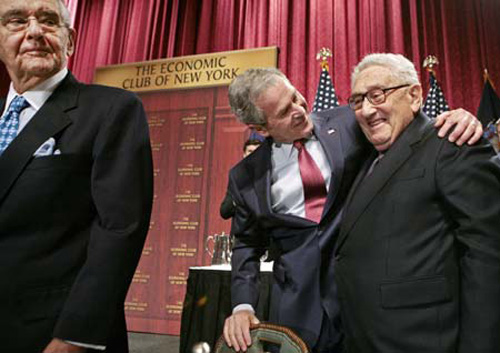
to be continued…
Watergate Exposed: How the President of the United States and the Watergate Burglars Were Set Up (as told to Douglas Caddy, original attorney for the Watergate Seven), by Robert Merritt is available at TrineDay, Amazon, Barnes & Noble, The Book Depository, and Books-a-Million.





